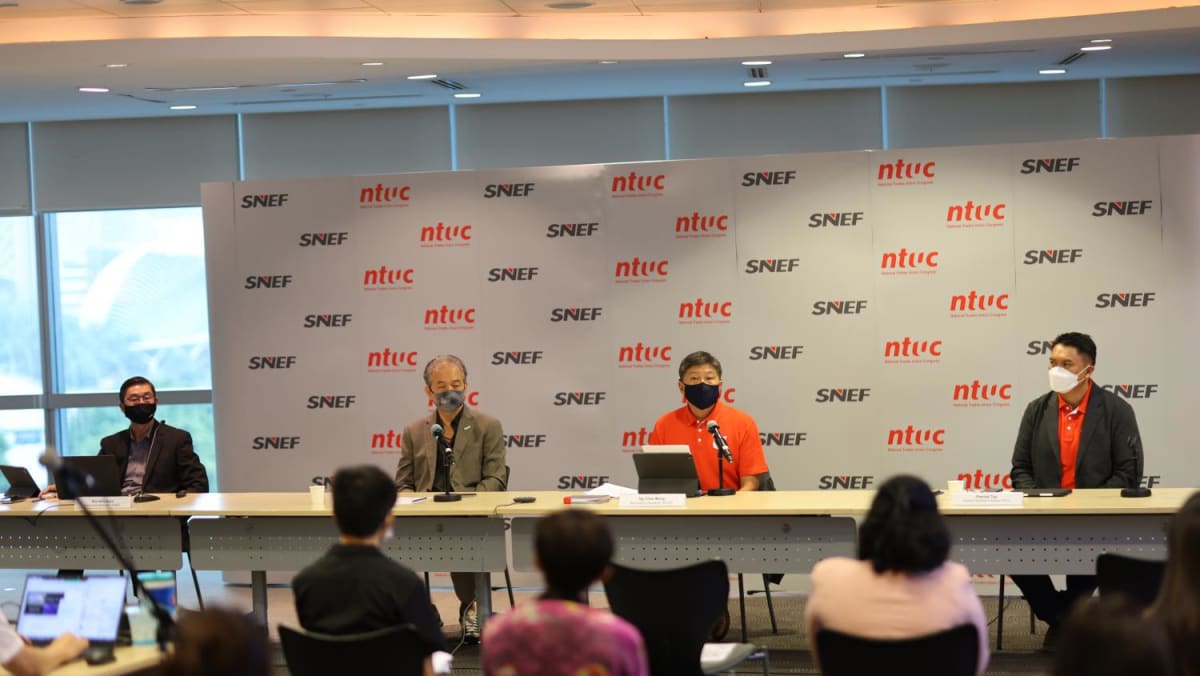PME task force recommends unemployment support, granting less access to foreign workers in ‘strategic’ occupations
Recommendation #1: Enhance fair employment practices through improving HR standards and strengthening enforcement against errant companies adopting fair practices
– Improve HR standards
a) Increase take-up of Institute for Human Resource Professionals (IHRP) certification for HR professionals or introduce top up modules on Singapore’s employment legislation & regulations for HR Professionals with internationally recognised certification
b) Companies with more than 200 employees are to ensure that their HR staff in recruitment, employee relations, training and development functions are equipped with IHRP or internationally recognised certification (with certification of top-up modules). Companies will have to submit proof of at least one of such in-company HR staff during application of Employment Passes.
c) Introduce shared HR services for SMEs
d) Fully accredit HR professionals in the longer term
– Strengthen enforcement on errant companies
a) Improve public communications on the Fair Consideration Framework and channels for reporting unfair hiring practices
b) Put in place safe whistle-blowing policies and procedures
c) Strengthen TAFEP’s enforcement power, empowering TAFEP to impose tough penalties on egregious companies and seek recourse for PMEs with “substantiated” hiring and workplace grievances
d) Improve workplace fairness through both legislative and non-legislative options by the newly set up Tripartite Committee on Workplace Fairness (TCWF)
Recommendation #2: Strengthen Singaporean core through enhancing EP application review process and facilitating skills transfer to local PMEs
a) Differentiate foreign worker access by occupations which have an ample supply of locals and in which locals have the required skills
b) Enhance the EP application review process by incorporating a point(s) system which considers a range of factors beyond the individual applicant’s education qualification and salary
c) Facilitate skills transfer from foreign specialists to local PMEs through further strengthening skills transfer schemes such as extending, expanding and enhancing the Capability Transfer Programme (CTP) to facilitate mandatory capability transfer
Recommendation #3: Widen support for PMEs through review of legislation on PME’s representation
a) Set up tripartite work group to review the scope of union representation of PMEs
Recommendation #4: Strengthen unemployment income support for PMEs who are involuntary unemployed
a) Basic tier – Introduction of a national transitionary support framework to provide supplementary income relief and assistance to those who are involuntarily unemployed, supplemented by active Labour Market Policy
i. Setting up of Tripartite Work Group to assess feasibility, conditions and size of support
b) Additional tier of support for:
i. All union members and/or
ii. Vulnerable mature PMEs
Recommendation #5: Assist mature PMEs to transit into meaningful employment through short-term salary support
a) Short-term salary support for companies who hire mature PMEs with relevant skills
b) Support training courses and mentorship programmes for relevant roles
– Fast track training programmes with certification to aid mature PMEs to transit into relevant roles
Recommendation #6: Build Singaporean leadership bench strength
a) Support leadership development programmes for Singaporean PMEs
b) Facilitate global development of Singaporean talent
Recommendation #7: Provide customised career coaching support for PMEs
a) Provide customised career coaching support to PMEs through professionally trained career coaches supported by NTUC and SNEF
i. Support/expand funding of career coaches to NTUC/SNEF to guide and support PMEs in companies
Recommendation #8: Develop structured jobs and skills plans for PMEs through Company Training Committees (CTCs)
a) Develop structured jobs and skills plans for PMEs through Company Training Committees (CTCs), to upskill workers in line with business and industry requirements:
i. Align employers’ and employees’ common interest for business and workforce transformation to co-create training plans
ii. Expand resources for NTUC to outreach and support more sectors and companies (including SMEs)
iii. Support training courses and mentorship programmes for relevant roles
Recommendation #9: Strengthen the nexus between tripartite partners to prepare workforce for economic transitions and investment pipelines
a) Reposition existing NTUC’s Job Security Council (JSC) as NTUC-SNEF JSC to strengthen the jobs ecosystem
b) NTUC-SNEF JSC will work with MOM and the relevant government agencies to improve the employment prospects and create good jobs for Singaporeans
Ensure that training needs are incorporated into Institutes of Higher Learning curriculum, in tandem with the fast-changing economic landscape
For all the latest business News Click Here

